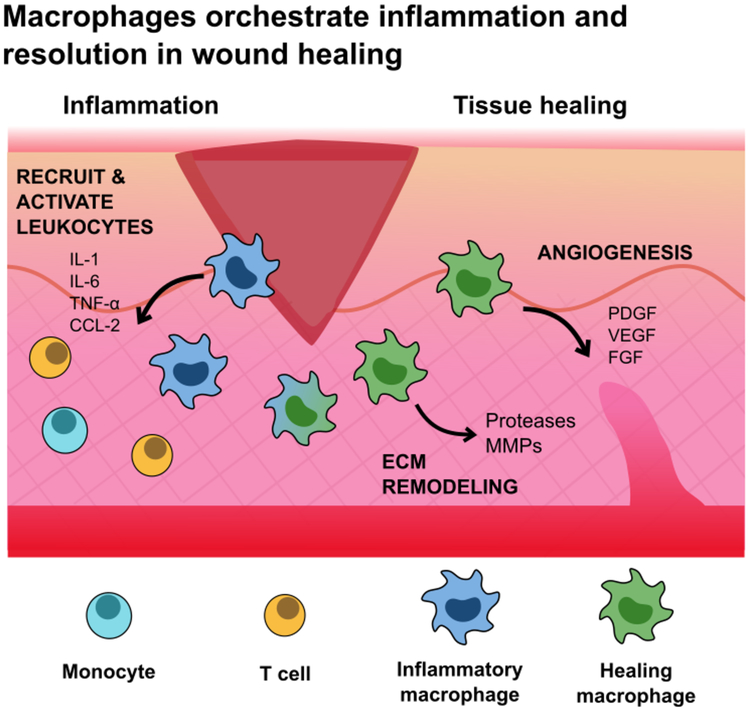Figure 6.
Macrophages hold an essential role in wound healing, orchestrating the cellular transitions from inflammation, proliferation, and remodeling. Macrophages release cytokines to recruit and activate leukocytes to the wound site, and promote ECM remodeling and new vessel growth. After the initial inflammatory phase, macrophages exert immunosuppressive activities to restore homeostasis and suppress T cell proliferation and activity. These behaviors mirror that of M2-like TAMs in cancer.

